13 Time Management Tools for Solo Entrepreneurs
Introduction
To juggle a full-time job and a side business can be a difficult task. Or maybe you are transitioning from a full-time job to a solo entrepreneur.
The key to this is efficient time management. Time is a resource that, once lost, you can’t recover. This is why solo entrepreneurs need to make the best use of their time.
Here we will explore a range of free and low-cost time management tools that can improve your productivity, keep track of your tasks, and optimize your time.
From online to-do lists to work management tools, let’s dive into some of the best resources available today.
Free Online To-Do Lists
1. Trello
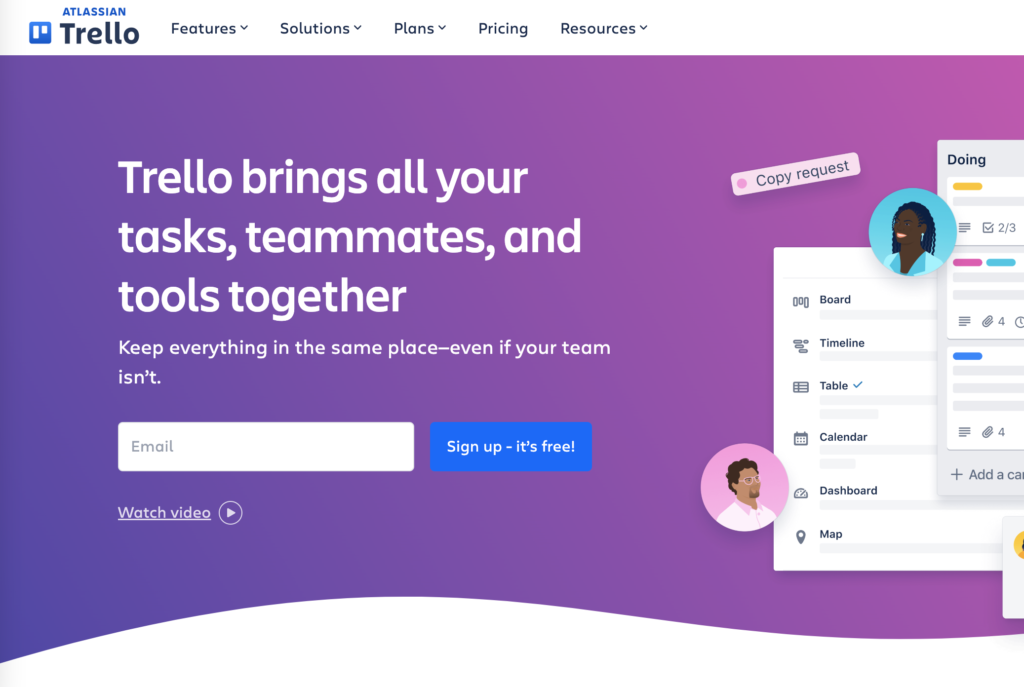
Trello is a highly flexible and versatile tool for organizing both work and personal life. At its core, Trello operates with a system of boards, lists, and cards. You can create a board for each project, and within those boards, make lists to divide tasks into categories. Each task is represented by a card that can be moved across lists, mimicking a workflow.
Cards can hold a multitude of information including due dates, attachments, comments, and checklists. They can also be assigned to different team members, making the delegation of tasks a breeze. If you’re a solo entrepreneur managing several freelancers, Trello is a great way to manage and track their work.
Trello’s flexibility lies in its many integrations with apps like Slack, Google Drive, and Evernote. It’s also available on multiple platforms, ensuring that you can manage your tasks wherever you are.
2. Microsoft To-Do / Wunderlist
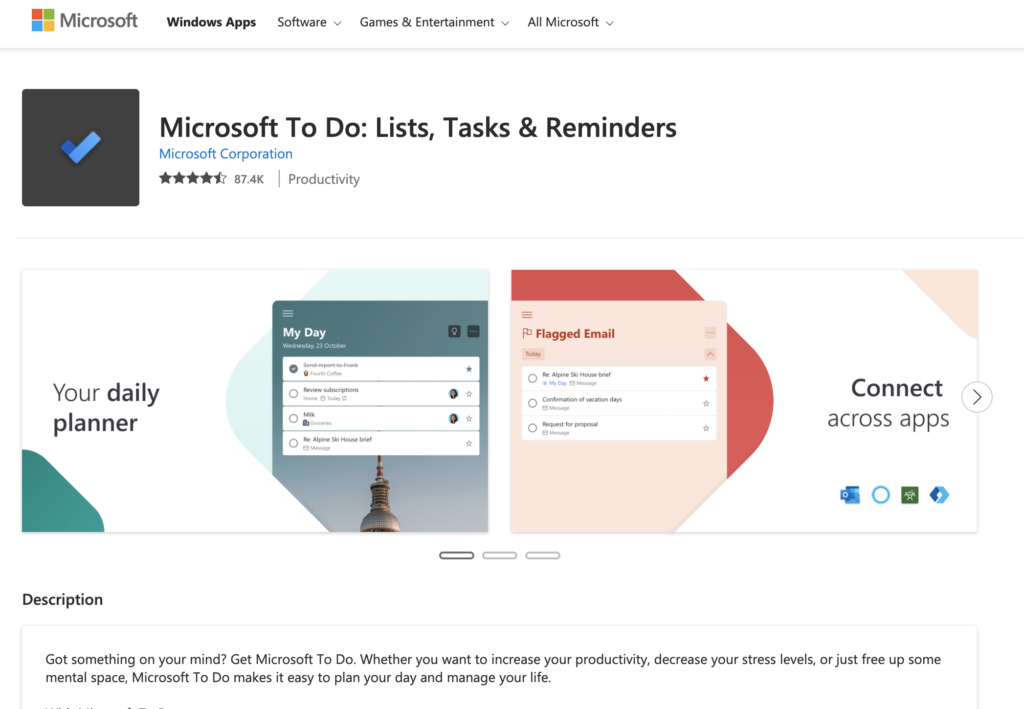
Before it was rebranded as Microsoft To-Do, Wunderlist was a popular to-do list application known for its simplicity and robust functionality. Now, as part of the Microsoft family, it offers even more features.
The strength of Microsoft To-Do lies in its seamless integration with other Microsoft services like Outlook and Office 365. It allows you to create tasks, set reminders, and add due dates. Its sharing feature allows you to share lists with others, making collaboration easy even for solo entrepreneurs who need to work with others.
One of the best features is its “My Day” list, which encourages you to plan your day each morning or the night before by adding tasks. This helps you focus on important tasks and improves productivity.
3. Evernote
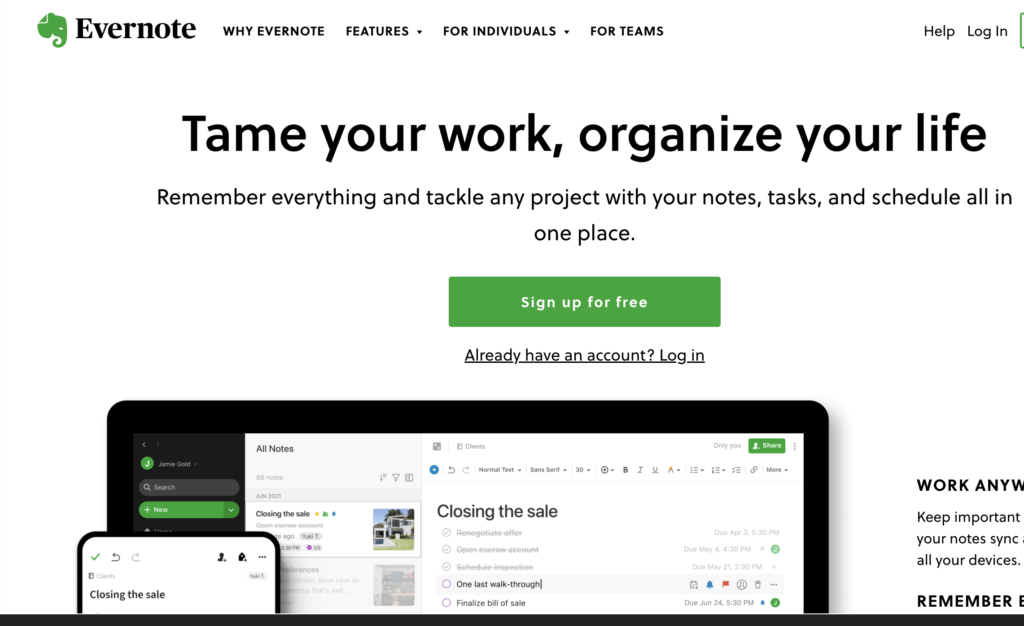
Evernote is more than a to-do list; it’s a powerful tool designed to help you remember everything that is important.
You can create notes, set reminders, and make checklists. However, its real strength lies in its note-taking capabilities.
Notes in Evernote are fully customizable. You can add text, images, audio, scanned documents, files, and even handwritten notes. The app’s robust search function can search text within images and documents.
Evernote’s Web Clipper extension allows you to save web pages, articles, and PDFs directly into your notes. This is particularly handy for research and collecting information from various sources. It also integrates with numerous other apps, ensuring a seamless workflow.
Evernote can act as a central hub for planning, organizing, and executing tasks, projects, and ideas.
Tools To Improve Your Time Usage
4. Focus Booster
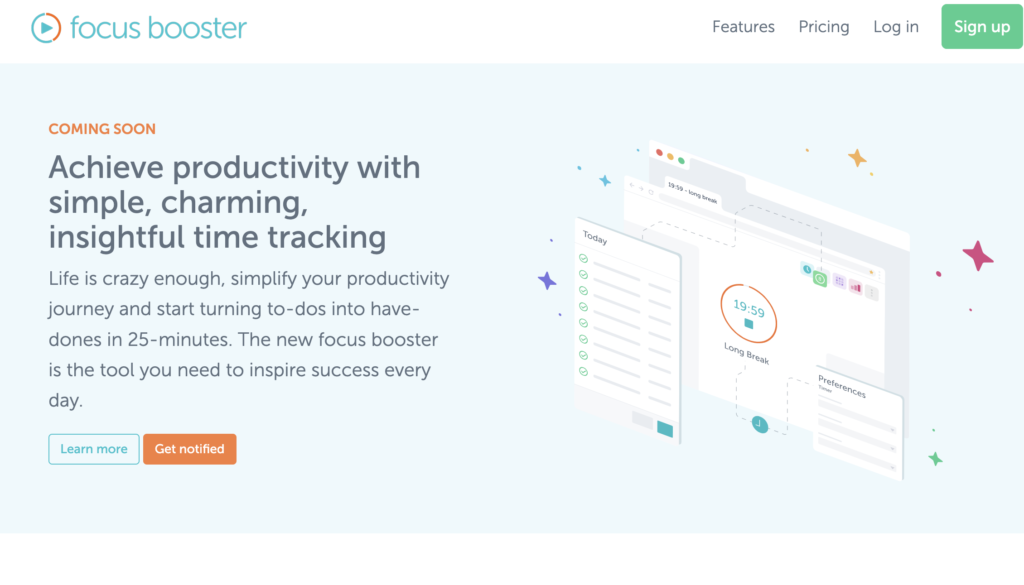
Focus Booster employs the well-known Pomodoro Technique to help improve your productivity and focus. The Pomodoro Technique involves dividing your work into intervals, traditionally 25 minutes, separated by short breaks. This method is known to improve mental agility and maintain high levels of focus.
Focus Booster records each session so you can track how you’re spending your time and identify patterns in your productivity.
This can help you plan your time better and avoid burnout.
If you’re juggling a full-time job and a side hustle, Focus Booster can help ensure you’re giving adequate attention to both.
5. Brain.fm

Brain.fm offers scientifically generated music designed to help you focus. Each track is created with a specific goal in mind—be it focus, relaxation, or sleep. Unlike regular music, the tracks on Brain.fm are designed to direct your cognitive state toward the desired outcome.
The app’s is simple and easy to use. Choose your desired outcome, put on your headphones, and let Brain.fm do the rest.
This tool works well when you need to block out distractions and focus on your work.
6. RescueTime
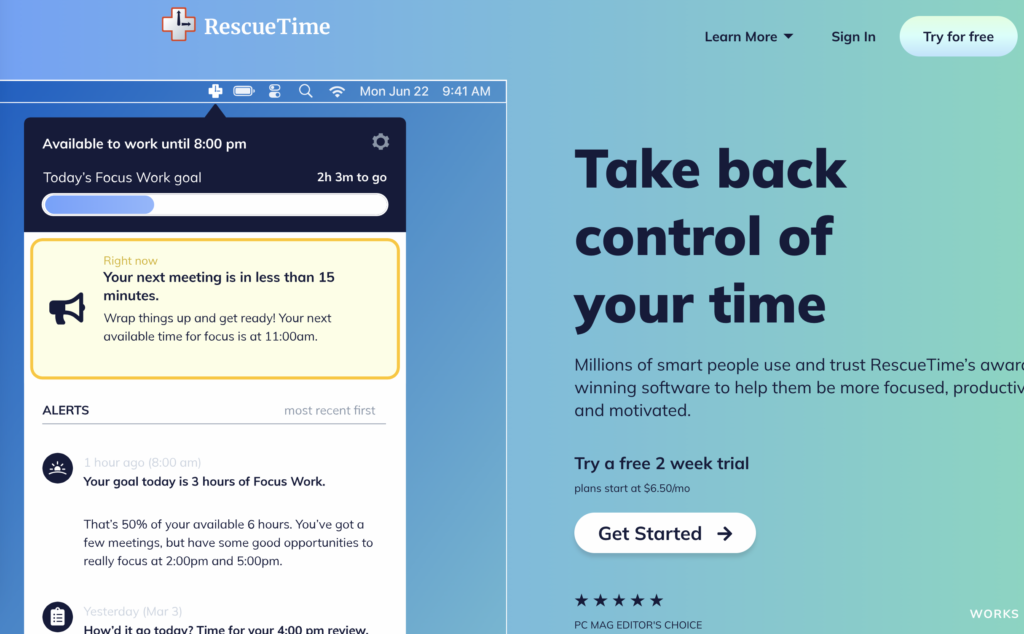
RescueTime is a time-tracking tool that runs in the background of your computer or smartphone, monitoring how you spend your time. It provides detailed reports showing which apps and websites you spent time on.
RescueTime allows you to set goals and alerts for how much time you want to spend on specific activities, like email or social media. You can also block distracting websites during your focus time.
For solo entrepreneurs, RescueTime provides valuable insight into how you spend your time, enabling you to eliminate time-wasting activities and focus on what matters.
Online Time Tracking Apps for You or a Small Team
7. Harvest
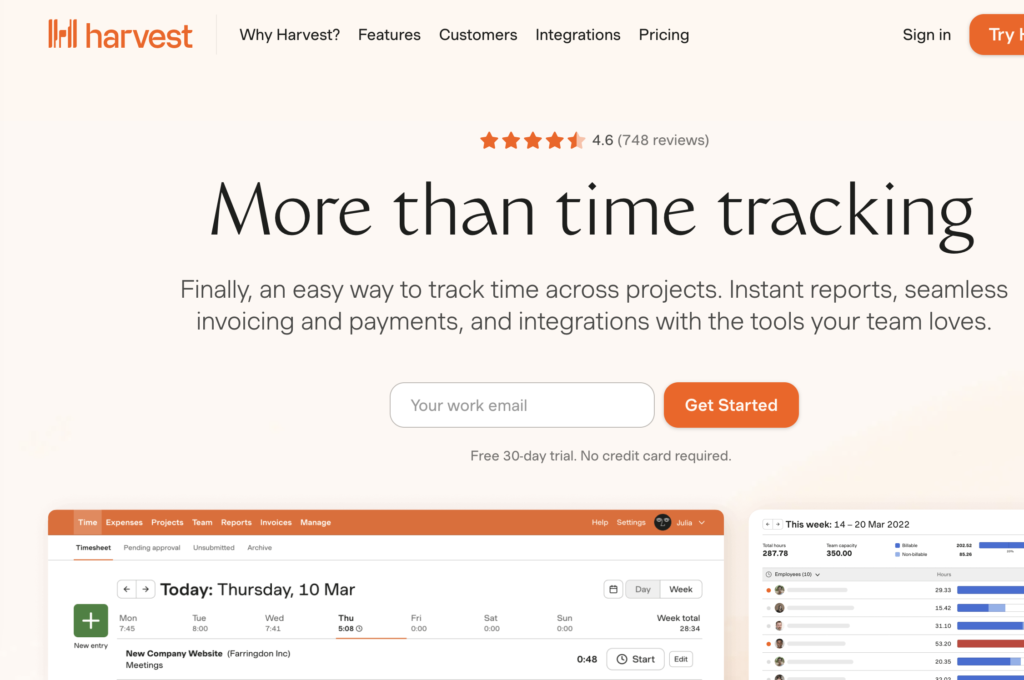
Harvest is an excellent time-tracking tool for solo entrepreneurs or small teams. Harvest allows you to track time spent on different tasks across various projects. It works with a variety of devices and integrates with many other tools like Asana, Trello, and Slack.
Harvest isn’t just about tracking time, though. It also has invoicing features that can automatically pull in billable hours and expenses. You can also create and send professional-looking invoices directly from Harvest.
For solo entrepreneurs or small businesses that need to track billable hours, Harvest is a must-have tool.
8. Web Time Tracker
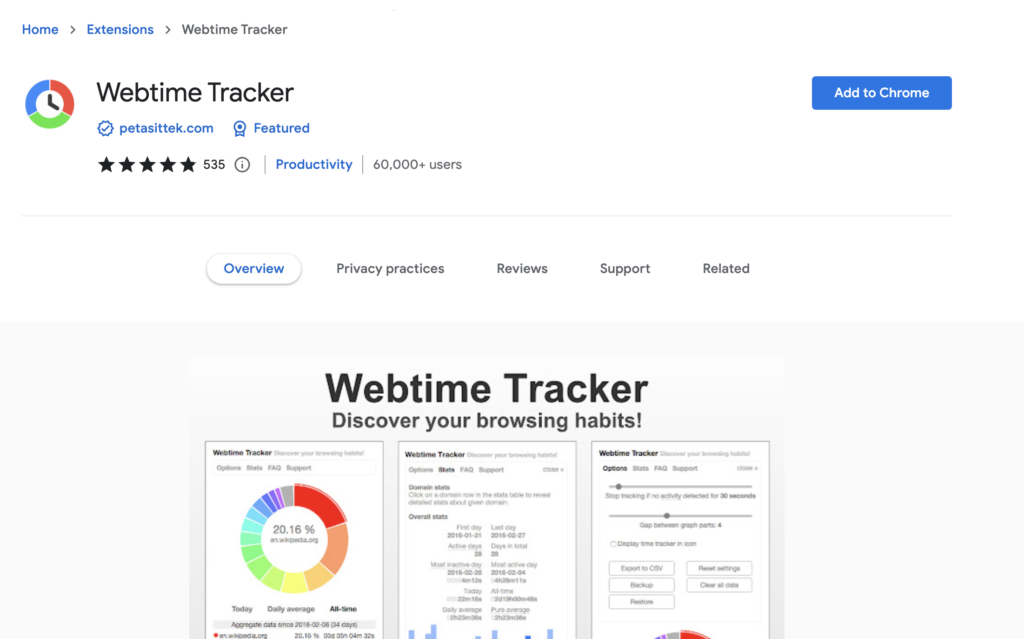
Web Time Tracker is another valuable tool for solo entrepreneurs who need to track how they spend their time online. It records the time you spend on various websites and also categorizes the sites to give you an overview of where your time is going.
Web Time Tracker offers real-time productivity tracking, so you can make adjustments as you work.
It also works well if you have a small team and want to monitor their online activities. Its reports are comprehensive and easy to understand, providing an accurate picture of your internet use.
9. Clockify

Clockify is another powerful free time tracker that allows you to track the time you spend on different tasks.
As a solo entrepreneur, you can use Clockify to understand where your time goes and how to manage it more effectively.
Clockify lets you categorize your time by project, client, or task type. You can add tags to your time entries to make it easier to filter and analyze your data.
It offers detailed reports that can help you optimize how you are spending your time.
Calendars and Reminders
10. Google Calendar
Google Calendar is a simple, free, and powerful tool.
It allows you to create events, set reminders, and share your calendar with others. Its integration with other Google services, like Gmail and Google Tasks, makes it a seamless part of your workflow.
For solo entrepreneurs, the convenience of Google Calendar is hard to beat. You can access it from any device.
11. Boomerang

Boomerang is a tool designed to enhance your productivity in managing emails.
It is integrated with Gmail and allows you to schedule emails to be sent later, set follow-up reminders for emails you send, and even pause your inbox to avoid distractions.
Boomerang’s ‘Respondable’ feature uses AI to help you write more effective emails. For entrepreneurs managing all communication themselves, Boomerang is a valuable tool for staying on top of your inbox.
12. Appointy
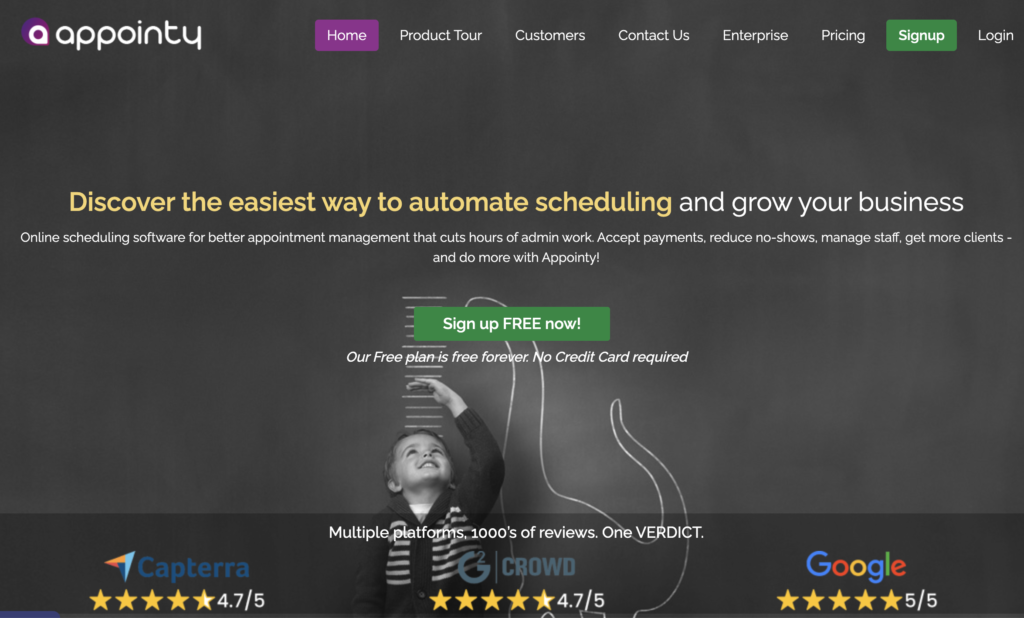
Appointy is a scheduling tool that allows your clients to schedule appointments with you online. It’s a great tool for solo entrepreneurs who need an easy way to manage their appointments and reduce the back-and-forth communication often required to find a suitable time.
Appointy integrates with Google Calendar, allowing you to keep your schedule up-to-date. It also sends automated reminders to clients, reducing the chance of missed appointments.
Other Work Management Tools
13. Google Workspace / GSuite
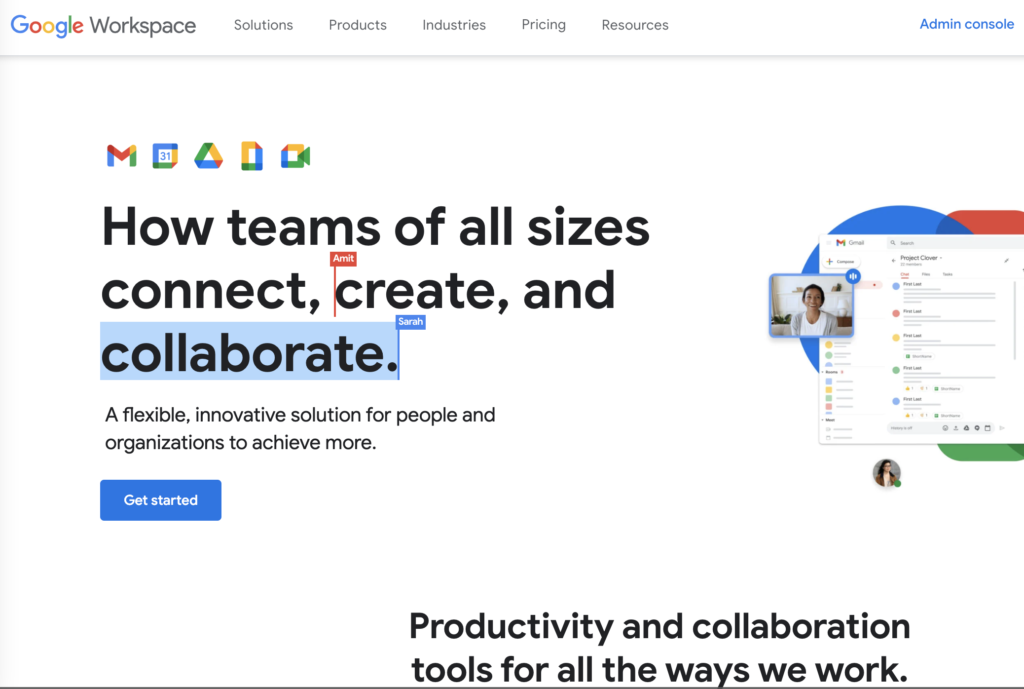
Google Workspace (formerly called GSuite) is a suite of productivity and collaboration tools provided by Google. It includes Gmail, Docs, Sheets, Slides, Calendar, Meet, and many other tools.
Google Workspace allows you to create, collaborate, and store documents online. It’s easy to use and scalable, making it a good choice as you grow your business.
Final Thoughts
Time management is crucial for solo entrepreneurs. The above tools will help you manage your time more effectively, and help you grow your business.
However, tools alone aren’t enough. To truly master time management, consider investing in time management courses that can provide you with the strategies and skills you need.
Good luck with your time management!
Frequently Asked Questions
How do solo entrepreneurs manage time?
Solo entrepreneurs manage time by utilizing various time management tools and strategies. They prioritize tasks, set clear goals, and use time tracking apps. Solo entrepreneurs also use calendars for scheduling, reminders for task deadlines, and productivity tools that can help manage workloads effectively.
What are the four time management tools?
There are many time management tools, but a typical set might include online to-do lists like Trello, Wunderlist, and Evernote, time usage tools such as Focus Booster, Brain.fm, and RescueTime, online time tracking apps like Harvest, Web Time Tracker, and Clockify, and calendar and reminder systems like Google Calendar, Boomerang, and Appointy.
What is a one-time management tool?
A one-time management tool is any tool that aids in the organization and prioritization of tasks, thereby improving productivity and time management. Examples include to-do lists, calendars, productivity apps, and project management tools.
What is an effective tool for managing time?
An effective tool for managing time is one that suits your working style and helps you organize tasks, manage time, increase productivity, and keep track of your goals. Tools like Trello, Focus Booster, and Google Calendar have proven effective for many people.
How do I schedule my day when I own a small business?
Scheduling your day when you own a small business involves setting clear goals, prioritizing tasks, utilizing tools like online calendars for appointments and reminders, and using time-tracking apps to understand where your time is being spent.
What are the 5 keys to time management?
The five keys to time management include prioritization, setting clear and realistic goals, effective scheduling, delegation where possible, and avoiding procrastination.
How much time is 1 business day?
A typical business day is usually 8 hours long, excluding lunch and breaks. However, this can vary depending on the business, region, and whether you are considering only operating hours or also include preparation and wrap-up tasks.
How do I create a 24 7 work schedule?
Creating a 24/7 work schedule isn’t about working all the time, but rather about optimizing your schedule for productivity. This could mean scheduling tasks for specific times, setting aside time for rest and recreation, and using productivity tools to streamline your workflow.
How do I make a daily schedule for myself?
You can make a daily schedule for yourself by prioritizing tasks, estimating the time each task will take, allocating time slots for each task in your calendar, and setting reminders for deadlines. Consider breaks and relaxation periods as well.
How do entrepreneurs spend their free time?
Entrepreneurs often spend their free time in activities that help them unwind, such as hobbies, sports, reading, spending time with family and friends, or pursuing personal interests. Some also invest in their personal growth through continued learning and networking.
How do you manage a solo business?
Managing a solo business involves setting clear goals, time management, prioritizing tasks, financial management, marketing, and customer service. It also involves leveraging productivity and management tools to streamline workflow.
Do entrepreneurs set their own hours?
Yes, entrepreneurs typically have the flexibility to set their own hours. However, they also have the responsibility to ensure that their business operations run smoothly, which may often require working outside traditional business hours.
Can an entrepreneur work alone?
Yes, an entrepreneur can work alone, especially in the early stages of a business. However, as the business grows, they may need to hire employees or outsource tasks to manage increasing demands.
What do entrepreneurs do all day?
Entrepreneurs spend their day on a variety of tasks, including strategizing, marketing, networking, managing financial operations








One Comment
Comments are closed.